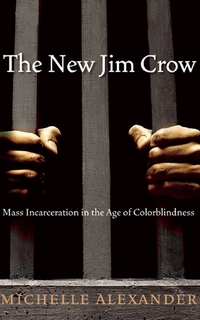Collection
5 good books for a lousy year
In a year like this, sometimes you want to go deep on a tough issue. Other times you need a break.
- Curated in 5 good books for a lousy year
Like many white people, I’ve tried to deepen my understanding of systemic racism in recent months. Alexander’s book offers an eye-opening look into how the criminal justice system unfairly targets communities of color, and especially Black communities. It’s especially good at explaining the history and the numbers behind mass incarceration. I was familiar with some of the data, but Alexander really helps put it in context. I finished the book more convinced than ever that we need a more just approach to sentencing and more investment in communities of color.

- Curated in 5 good books for a lousy year
I started following Epstein’s work after watching his fantastic 2014 TED talk on sports performance. In this fascinating book, he argues that although the world seems to demand more and more specialization—in your career, for example—what we actually need is more people “who start broad and embrace diverse experiences and perspectives while they progress.” His examples run from Roger Federer to Charles Darwin to Cold War-era experts on Soviet affairs. I think his ideas even help explain some of Microsoft’s success, because we hired people who had real breadth within their field and across domains. If you’re a generalist who has ever felt overshadowed by your specialist colleagues, this book is for you.

- Curated in 5 good books for a lousy year
Sometimes history books end up feeling more relevant than their authors could have imagined. That’s the case with this brilliant account of the years 1940 and 1941, when English citizens spent almost every night huddled in basements and Tube stations as Germany tried to bomb them into submission. The fear and anxiety they felt—while much more severe than what we’re experiencing with COVID-19—sounded familiar. Larson gives you a vivid sense of what life was like for average citizens during this awful period, and he does a great job profiling some of the British leaders who saw them through the crisis, including Winston Churchill and his close advisers. Its scope is too narrow to be the only book you ever read on World War II, but it’s a great addition to the literature focused on that tragic period.
- Curated in 5 good books for a lousy year
This nonfiction account focuses on Oleg Gordievsky, a KGB officer who became a double agent for the British, and Aldrich Ames, the American turncoat who likely betrayed him. Macintyre’s retelling of their stories comes not only from Western sources (including Gordievsky himself) but also from the Russian perspective. It’s every bit as exciting as my favorite spy novels.

- Curated in 5 good books for a lousy year
This book is truly uplifting. It documents a story of remarkable scientific innovation and how it has improved the lives of almost all cystic fibrosis patients and their families. This story is especially meaningful to me because I know families who’ve benefited from the new medicines described in this book. I suspect we’ll see many more books like this in the coming years, as biomedical miracles emerge from labs at an ever-greater pace.

